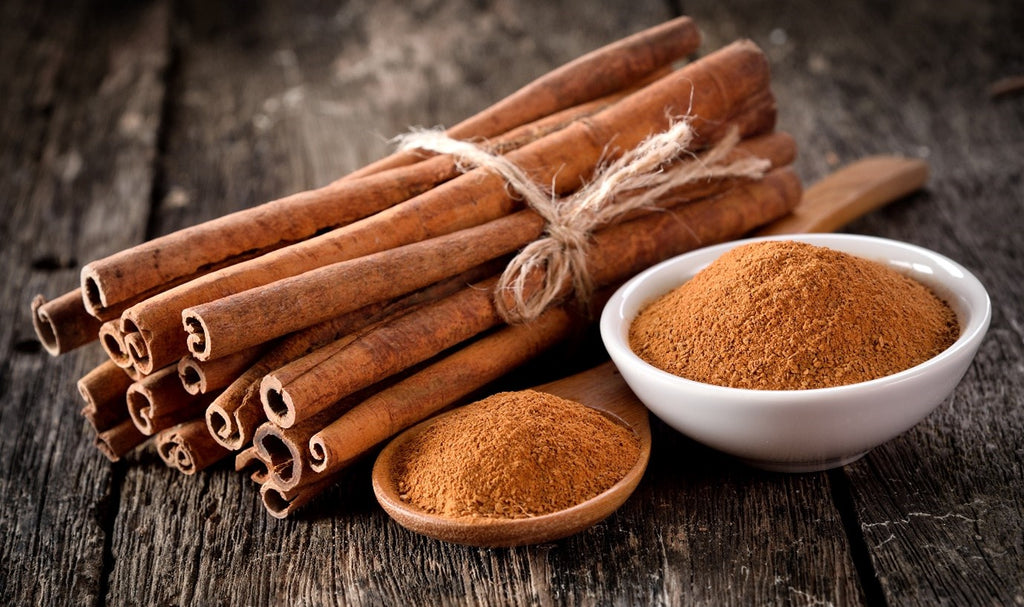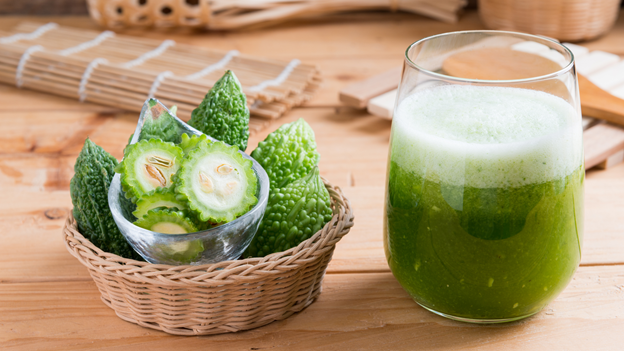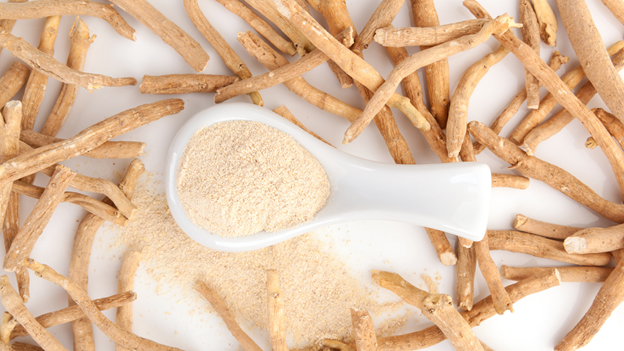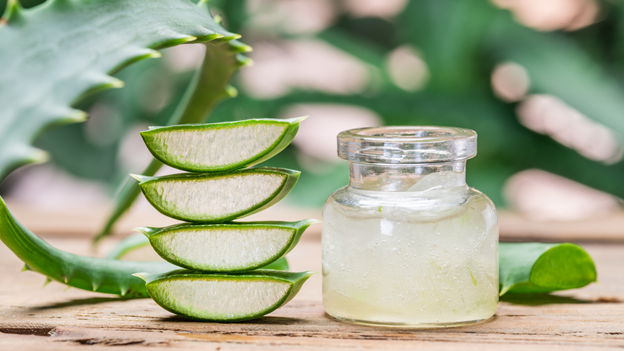If you are tired of taking prescription medicines regularly and your sugar levels are still soaring high, then this article is for you! Diabetes is a chronic ailment that stays with you like a good friend. Many people across the globe opt for metformin in the treatment of diabetes. However, this very drug entails several side effects, thus, prompting many to look for alternatives to metformin.
What Does Metformin Do?
Metformin is an FDA-approved drug and has been the mainstay of therapy in the treatment of diabetes mellitus. The drug is effective in alleviating symptoms of diabetes. Metformin achieves this feat in a number of ways.
According to a study, metformin lowers your glucose levels by:
- Reducing the production of glucose i.e. gluconeogenesis
- Opposing the signaling of the liver by glucagon hormone
- Increasing the glucose uptake of the skeletal muscles
Conditions Indicated For Metformin Usage?
In addition to diabetes, metformin is used for various health conditions that are discussed below:
Polycystic Ovary Syndrome (PCOS)
Metformin is not officially prescribed for PCOS but has shown promising results. According to a study, metformin intake in PCOS patients undergoing in vitro fertilization procedures significantly improved pregnancy outcomes.
Women suffering from PCOS find it difficult to conceive. Metformin can treat this infertility. As per a randomized controlled trial, metformin consumption decreases early miscarriage and improves pregnancy rates.
Obesity
Metformin is frequently used for reducing weight in obese patients. Obesity is directly linked to increases in insulin resistance. Therefore, doctors recommend diabetic patients lose weight in order to improve insulin sensitivity.
According to a study, metformin is very effective in reducing the weight of obese patients having high insulin resistance. Another study found that metformin is efficacious in reducing BMI and insulin resistance in obese kids with hyperinsulinemia.
Strict dietary routine and metformin intake helped obese adolescents reduce significant amounts of weight in a study.
Diabesity
Diabesity is a term given to people suffering from two health conditions at the same time i.e. obesity and diabetes. Studies have proven that diabetes can lead to obesity and vice versa. Metformin can take a dig at diabetes at once.
Side Effects Of Metformin
Though efficacious in treating specific conditions (diabetes, obesity, and PCOS) metformin has some serious side effects. The most common side effects faced by people taking metformin are:
- Abdominal pain
- Hypoglycemia (low blood sugar levels)
- Nausea
- Vomiting
- Diarrhea
- Vitamin deficiency (vitamin B12)
- Constipation
- Asthenia (weakness)
Does Metformin Cause Hair Loss?
Metformin does not have any direct impact on your hair health. However, the drug may be indirectly related to hair loss. As already mentioned prolonged usage of metformin can lead to vitamin B12 deficiency in the body that can cause anemia.
According to a study, long-term metformin intake is linked to vitamin deficiency and anemia development. Hair loss is a feature of anemia. A bizarre case of loss of eyebrows and eyelashes is reported by Elena and colleagues. In this particular case, a 69-year old man with diabetes Mellitus type 2 reported having lost hair of her eyelashes and eyebrows. The only plausible explanation of this was metformin and sitagliptin intake.
Herbal Supplements That Mimic Metformin: Alternatives To Metformin
Studies have estimated that the prevalence of diabetes will rise to 10.1% by 2035. This expected rise should be dealt with with extreme care and priority. To do this we can not just rely on metformin (because of the adverse effects). To ease things out for you, the following is a list of the most potent herbal supplements that are alternatives to metformin:
1. Cinnamon

This herb is revered by many as an anti-diabetic herb. This natural product is potent in managing all the conditions treated with metformin. According to research, cinnamon can improve the glycemic index and lipid profile of type 2 diabetic patients.
Cinnamon is a natural alternative to metformin. It not only helps diabetic conditions but is also very effective in improving lipid profiles. As per a meta-analysis, consumption of cinnamon improves the following:
- Fasting glucose levels
- Cholesterol levels
- Triglyceride levels
There are some controversies regarding the role of cinnamon but the majority of studies have concluded that cinnamon supplementation leads to improvements in blood pressure and fasting glucose levels.
Metformin is also famous for its cardioprotective and neuroprotective properties. As per a study, cinnamon can very well mimic this role of metformin. This very herb is capable of alleviating symptoms of type 2 diabetes and associated cardiovascular symptoms.
Non-insulin-dependent type 2 diabetics have also reported improvements in blood glucose levels with regular cinnamon usage.
Check our cinnamon product here.
2. Ginger
Another potent alternative to metformin is ginger (zingiber Officinale). The yellow herb does a fantastic job in helping you maintain a healthy glycemic index. According to a study, ginger supplementation significantly improves HbA1c, fasting blood sugar levels, and lipid profile of diabetic patients.
Just like cinnamon, ginger can prove to be a miracle herb for those wanting to lose weight. Ginger too can help manage diabesity relatively easily. As per a review, ginger has potent anti-diabetic properties. Ginger supplementation improves insulin sensitivity in diabetic rats.
A study reveals that ginger impacts the activity of glycolytic enzymes and therefore brings about improvements in symptoms of diabetes. Another study promotes the use of the ginger supplement for diabetes management owing to the improvements in insulin sensitivity and lipid profile brought about by its usage.
Gingerol is the major component present in ginger that is linked to enhancements in glucose tolerance, lipid levels (cholesterol, LDL, HDL), and insulin levels in the body.
3. Bitter Melon

Bitter gourd or bitter melon may not be your favorite veggie but the extracts of this vegetable are extremely beneficial for combating diabetes. Momordica charantia (bitter melon) can evidently reduce raised glucose levels in the body.
According to a mini-review, bitter gourd has potent anti-diabetic properties. It can have a hypoglycemic effect and is, therefore, used in alternative and complementary medicine for the treatment of diabetes.
It was found in a comparative study that bitter melon had a hypoglycemic effect similar to metformin and thus can be used as an alternative treatment for diabetes mellitus type 2. Momordica charantia can also be used in managing gestational diabetes in pregnant women.
Bitter gourd supplementations can boost your insulin performance and can be used as an alternative to metformin.
4. Fenugreek
The constantly undulating blood sugar levels in the body are a source of worry for diabetic patients. Persistently higher than normal glucose levels in the body can cast negative impacts on your eyes (retinopathy), nerve (neuropathy), and kidneys (nephropathy). Therefore, it is important to keep glucose levels within normal limits.
In addition to medications such as sitagliptin and metformin, you can also try fenugreek (Trigonella foenum-graecum) for lowering the high BSR. According to a study, fenugreek supplements can be very beneficial in controlling glycemic index and lipid levels in patients suffering from non-insulin-dependent diabetes mellitus (NIDDM).
This alternative to metformin has the added advantage of reducing inflammation and oxidative stress in the body. This was confirmed by a randomized controlled trial carried out in 2018.
Another randomized controlled trial done in 2019 approves the use of fenugreek as an adjuvant therapy to anti-diabetic drugs.
You can improve your fasting plasma glucose levels by taking 15g/day supplementation of fenugreek for 8 weeks straight.
5. Saffron
The red Persian spice can flush out almost all maladies from your body. The expensive herb can beat diabetes naturally and can act as a strong alternative to metformin. Safranal, crocin, and picrocrocin in the herb impart a wide variety of effects including:
- Antioxidant effect
- Anti-hyperglycemic effect
- Hyperlipidemic effect
There are numerous studies that advocate the use of saffron by diabetics. According to a randomized controlled trial, saffron extracts can significantly improve diabetic conditions by reducing fasting blood sugar levels in type 2 diabetes patients.
Saffron can stand parallel to metformin when it comes to diabetes management. This multi-beneficial herb can also be used by type 1 diabetics. Unlike metformin that only provides benefit to type 2 diabetics, saffron can improve insulin secretion in type 1 diabetics, a study suggests.
You can also experience a reduction in inflammation along with improvements in blood glucose levels with saffron supplementation. As per a 2020 randomized controlled trial, saffron supplementation is linked to decreased levels of inflammatory cells (interleukin-6 and TNF-a), and reductions in blood glucose levels of diabetic patients.
Check our Pure Saffron Extract here.
6. Ashwagandha

This ancient medicinal herb is widely famous for a number of reasons. It is effective in a lot of medical conditions and can act as an alternative to plenty of drugs let alone metformin.
According to a 2017 review, Withania somnifera is quick to impart anti-diabetic and hypoglycemic properties. Complications associated with diabetes can also be well managed with this multi-potent herb.
Indian studies suggest that ashwagandha can be used efficiently for maintaining a low glycemic index in hyperglycemic diabetes patients.
As per a randomized controlled trial, regular intake of Withania somnifera extracts leads to noticeable improvements in fasting blood glucose levels and lipid profile. By acting on both (glucose levels and triglyceride levels), ashwagandha can prove to be an ideal alternative to metformin.
Ashwagandha is rich in compounds called withanolides. One such withanolide (Withaferin A) has strong anti-diabetic properties, a study suggests.
Go to our ashwagandha product here.
7. Bilberry Extract
Berries are amazing foods for maintaining good physical and mental health. There are a number of therapeutic benefits given off by these fruits. Bilberry Extract is an anti-diabetic item that can act as a potent alternative to metformin. You can get bilberry extract supplements to improve your glycemic index.
Bilberries are rich in anthocyanins that have robust anti-diabetic properties. According to a study, bilberry extract carefully alters the metabolomic profile in diabetic rats leading to improvements in diabetes.
As per a 2020 study, the anthocyanin-rich berry can help you control your glucose homeostasis better. The supplement when taken for three weeks shows improvements in the glycemic index without alterations in insulin levels.
It was found in a study that bilberry extracts (anthocyanins) can improve lipid profiles of your body too.
Anthocyanins from bilberry extract ameliorate hyperglycemia and call for increases in insulin sensitivity of the body, a study suggests.
8. Aloe Vera

Aloe vera is widely regarded as the ideal herb for skin health. It can fight against skin conditions such as psoriasis, acne, and eczema. In addition to that, the green herb can help you out in maintaining an ideal blood sugar level. According to a systematic review, aloe vera has strong anti-diabetic effects on the human body.
In addition to the anti-diabetic effect, aloe vera can also revert diabetes-induced nephropathy, thus making it more than just an alternative to metformin. Studies suggest that this herbal supplement improves energy expenditure of the body while increasing insulin productivity and sensitization potential. Aloe vera also has the ability to improve your fat profile, thus, it also mimics the role of metformin in weight loss.
A 2017 systematic review based on many studies justifies the use of aloe vera in the management of diabetes mellitus.
Strong evidence exists that allows the use of aloe vera in managing diabetic conditions and carrying out weight loss. Aloe vera also helps reduce HbA1c levels in the blood.
Where To Find The Best Supplements?
Finding organic supplements is a tough task. But you don’t need to worry because Beherbal.com has a wide variety of completely organic, safe, and quality herbal supplements.
If you are looking for effective alternatives to metformin, you should check out the Ceylon Cinnamon by clicking here.
The Organic Turmeric and Ginger supplement will detoxify your body and help you in your fight against diabetes.
The Ashwagandha root powder is completely organic and potent in rejuvenating your body. With this supplement at hand, you can say goodbye to medicines for diabetes (especially metformin).
The Golden saffron extract can be your ammunition against diabetes. It can save you from mood disturbances and increased weight issues. Stop relying on metformin for weight loss and start using this miraculous supplement.
Conclusion
Metformin is a frequently used drug in the management of diabetes mellitus type 2. The drug has also shown promising results in the treatment of obesity and PCOS. However, like all drugs, metformin comes with a series of side effects, some insignificant and some serious. To overcome this you should look for something safe in nature.
Thankfully, mother nature provides us with herbal alternatives to metformin that include cinnamon, ginger, saffron, bilberry, ashwagandha, bitter gourd, and fenugreek. These herbs are potent in improving diabetic conditions and lowering body weight.




